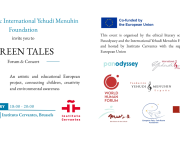
The difference between a good writer and a great writer
 3 min
3 min
The difference between a good writer and a great writer
You may have the prerequisites to be a good writer: a sound academic background, keen interest in writing and an innate curiosity to learn more. But what if your attitude is keeping you from your true writing potential? Certain traits – some inherent and some acquired – just make all the difference between being a good writer and being a great writer, particularly in the case of scientific and academic writing.
#1: The ability to be objective
An objective person approaches his/her writing as a mere observer, often detached from the findings or revelations conveyed through the written word. This allows for writing that is always factual and unbiased, devoid of personal feelings. Unlike creative writing that invites the reader's mind and heart to engage with the plot and characters, scientific and academic writing must be both compelling AND objective, without promotional fluff and frills.
#2: The openness to be wrong
For the longest time, I did all I could to avoid saying the words "I don't know." This inherent need to be all-knowing and right does little to advance your writing career. A good writer devises a writing hook and sticks to it; a great writer has several hooks in mind, ready to abandon or adapt them as the writing and research demands. Science writing, for example, calls for regular revision of information that must be updated in line with real-world findings.
What you write today may be invalid tomorrow. Let the research guide your way. Be open-minded enough to go back and re-write completely.
#3: The knack to make your reader care
It is easy to get attached to your writing and lose all sight of the reader. Doesn’t this entirely defeat the purpose of writing? Put yourself in the audience's shoes every now and then during the writing process. Ask yourself: Is your headline interesting enough to make readers pause from their infinite scrolling and click on your article? Are you leaving the audience with something new that might enrich their life in any way?
Ultimately, the path to great writing requires stepping back from your content and judging every word for its contribution to the piece. A writing mentor once told me to ask the words "SO WHAT?" when proof-reading my articles. If you find yourself asking ‘so what’ when you read your headline and article, chances are that your reader will not care for it either. So write and edit, and then edit some more, to leave your reader inspired and more knowledgeable than before.









 English
English
 Français
Français
 Deutsch
Deutsch
 Italiano
Italiano
 Español
Español



 Colaborar
Colaborar









 Puedes apoyar a tus escritores favoritos
Puedes apoyar a tus escritores favoritos





